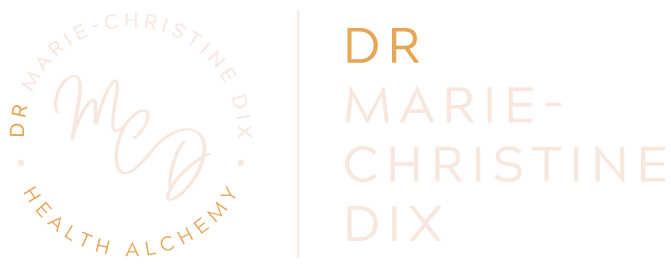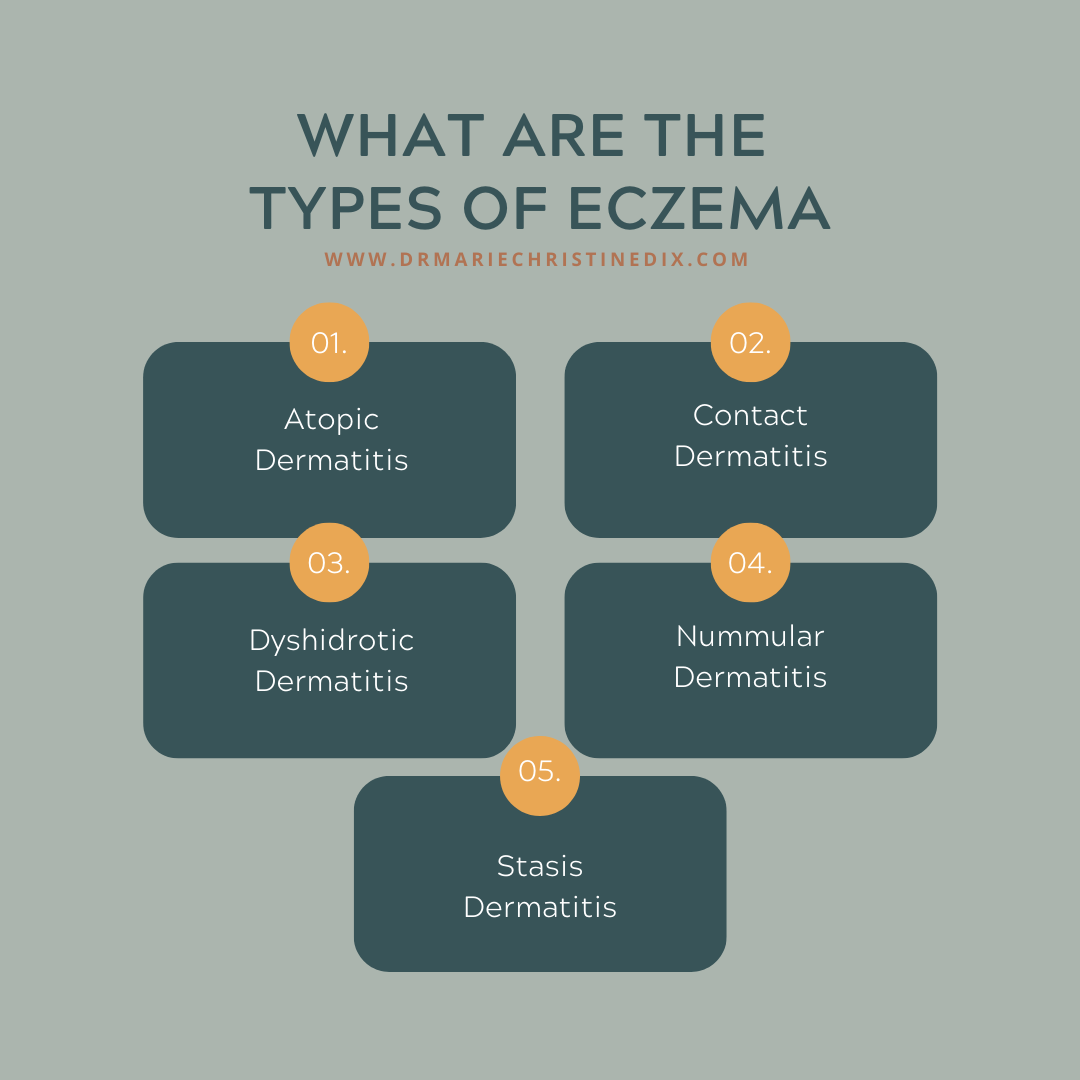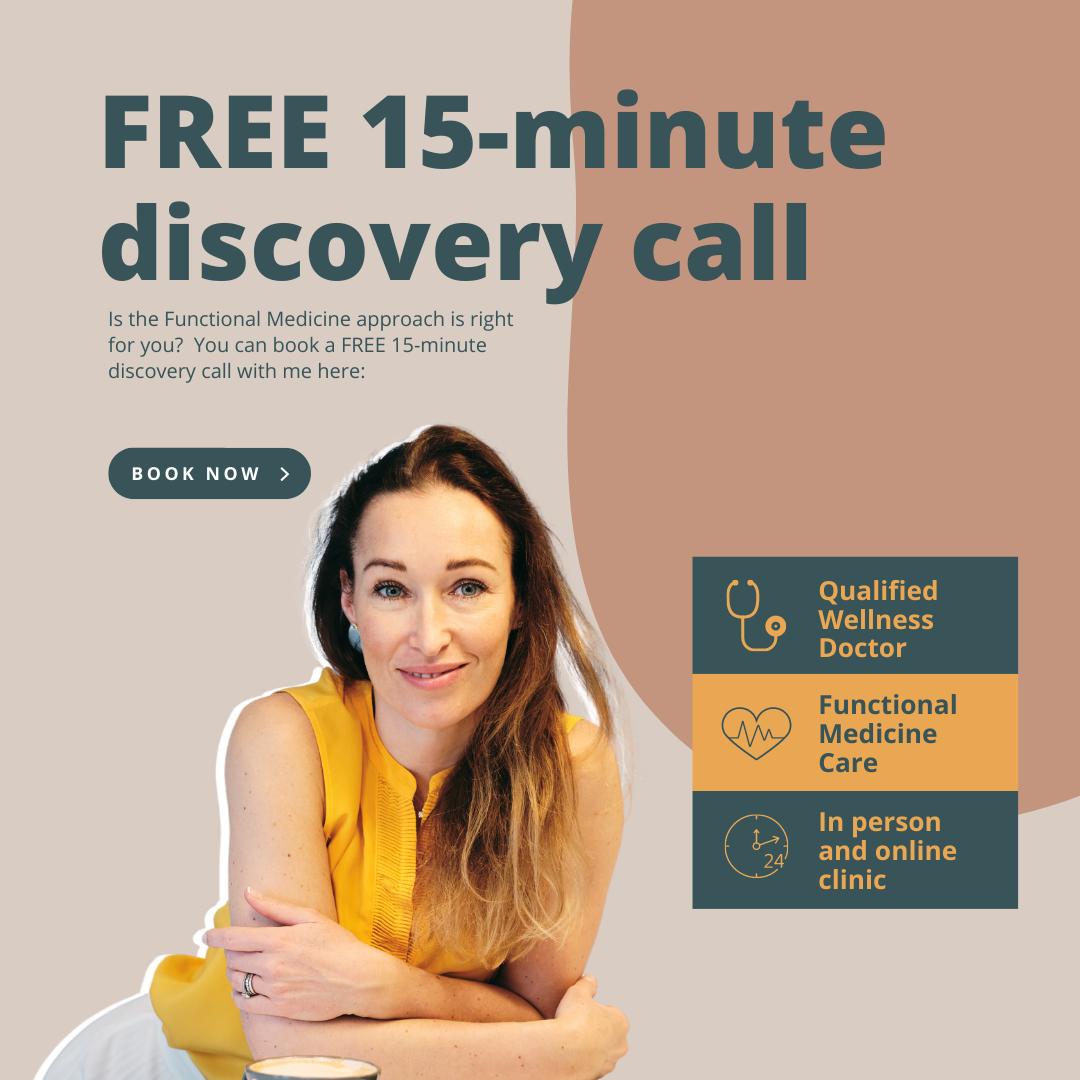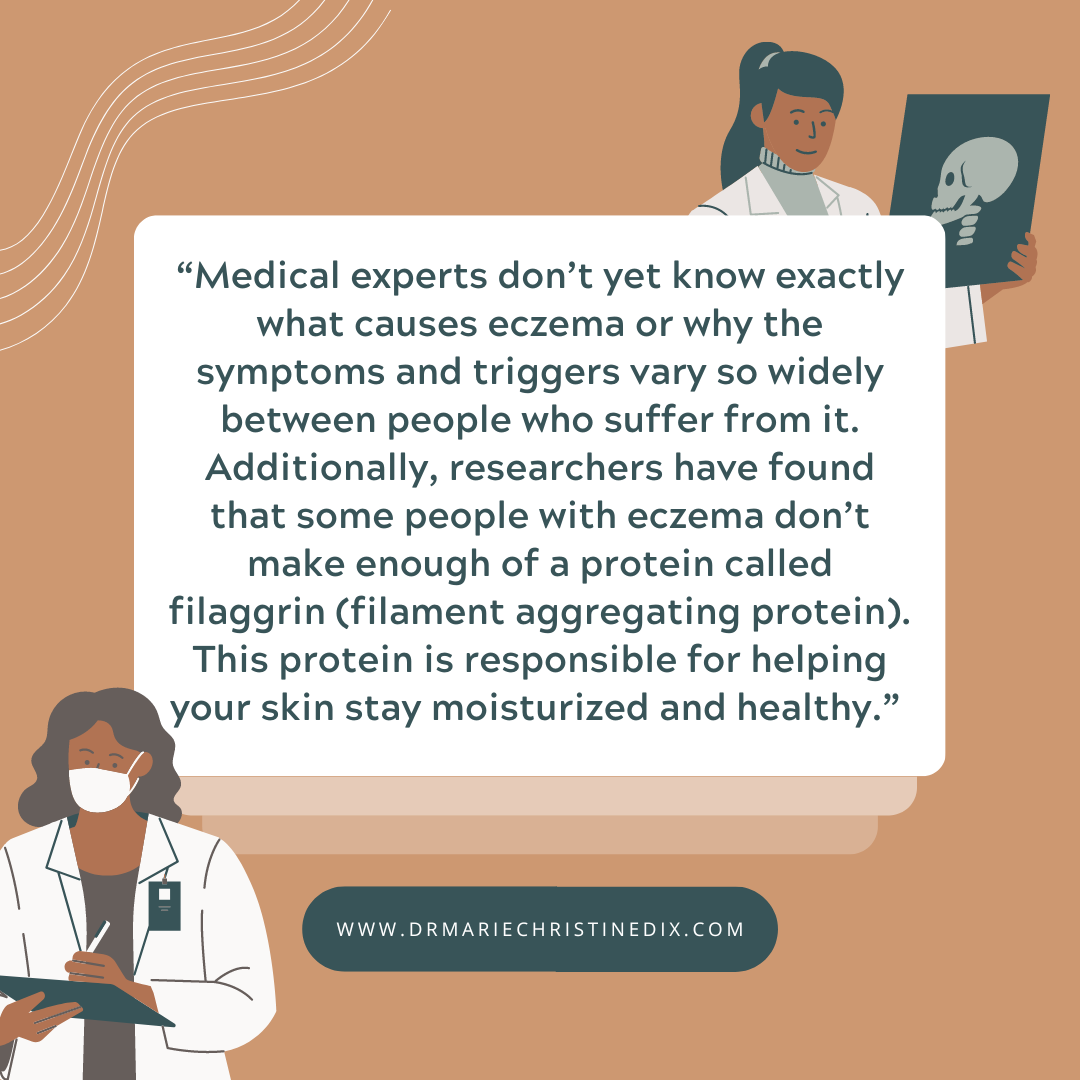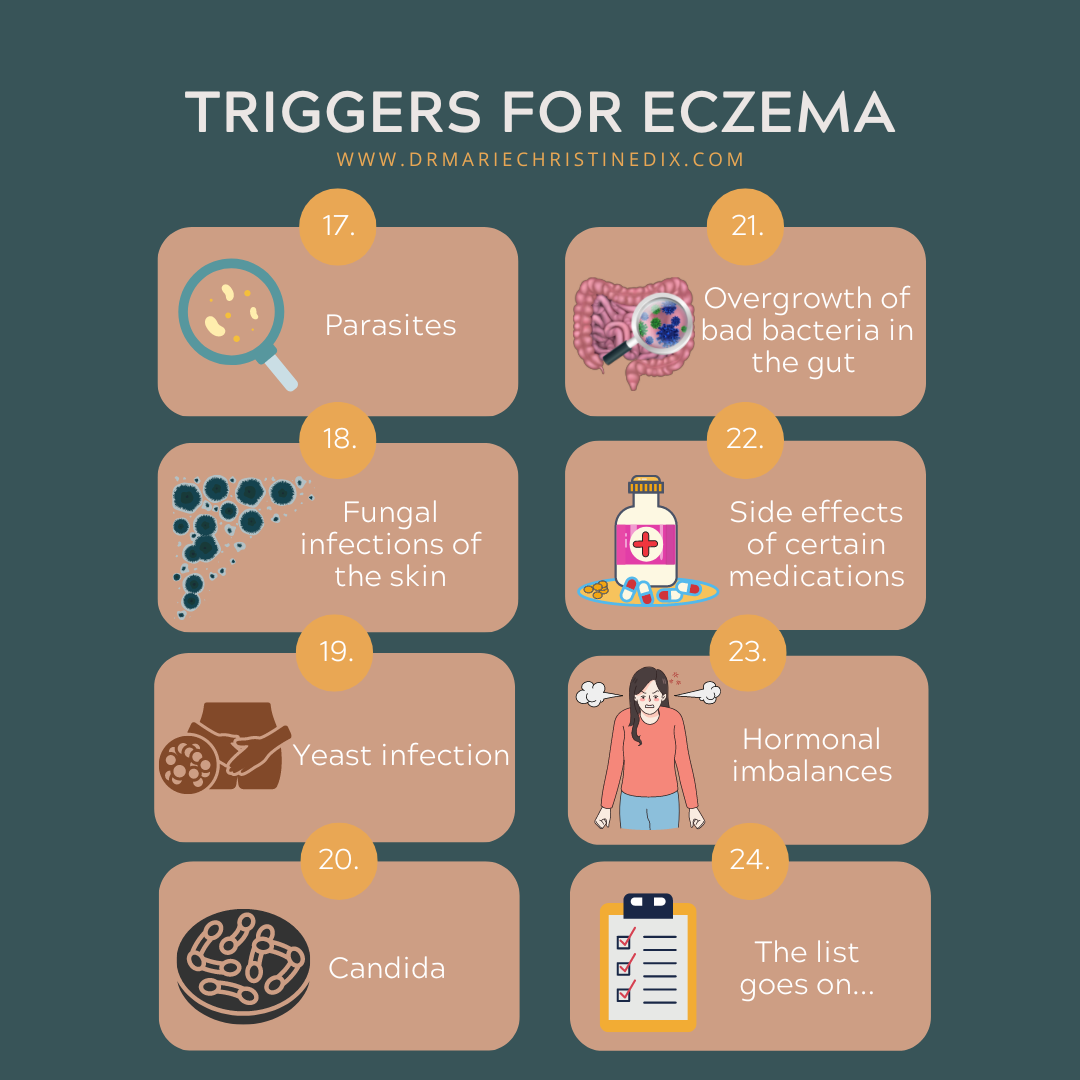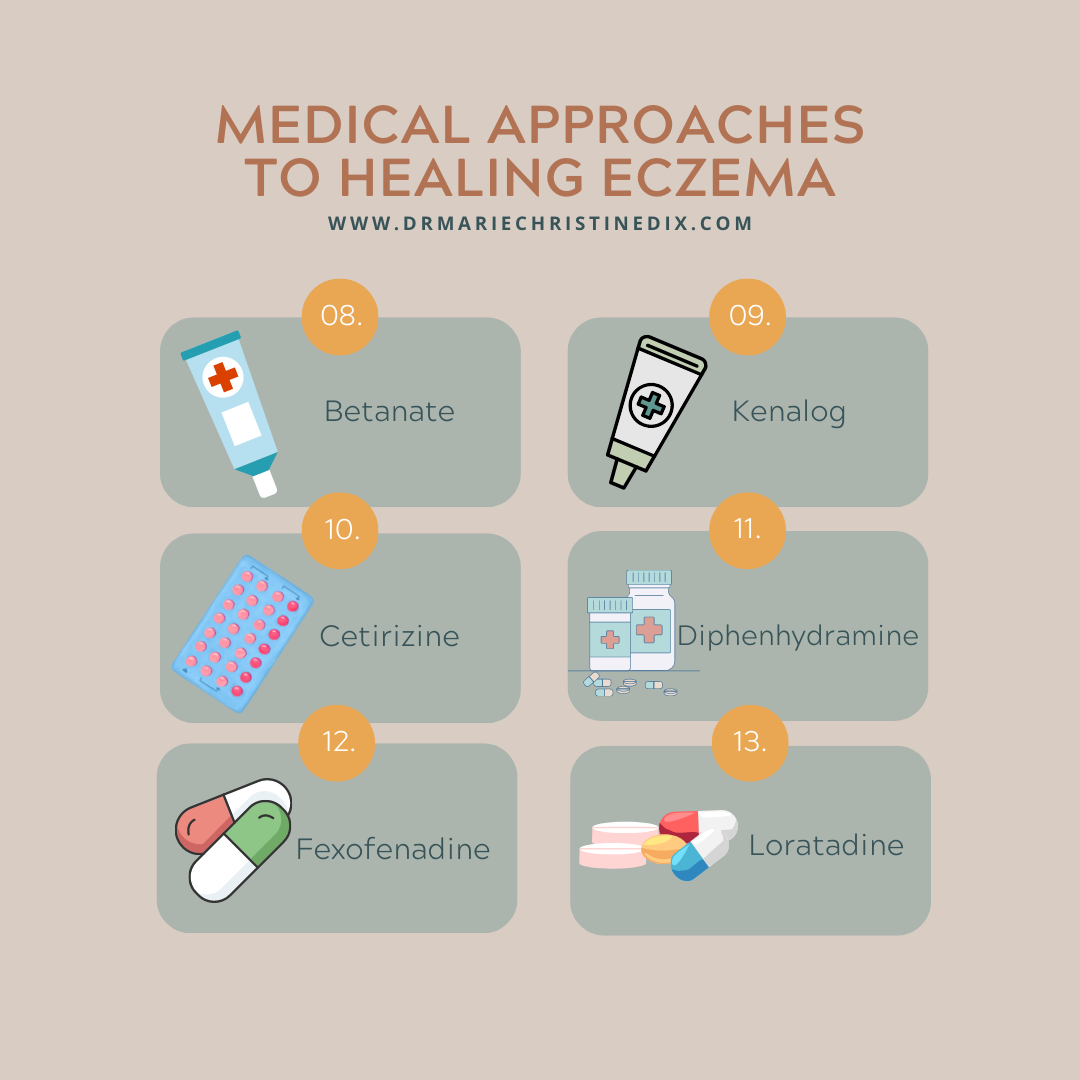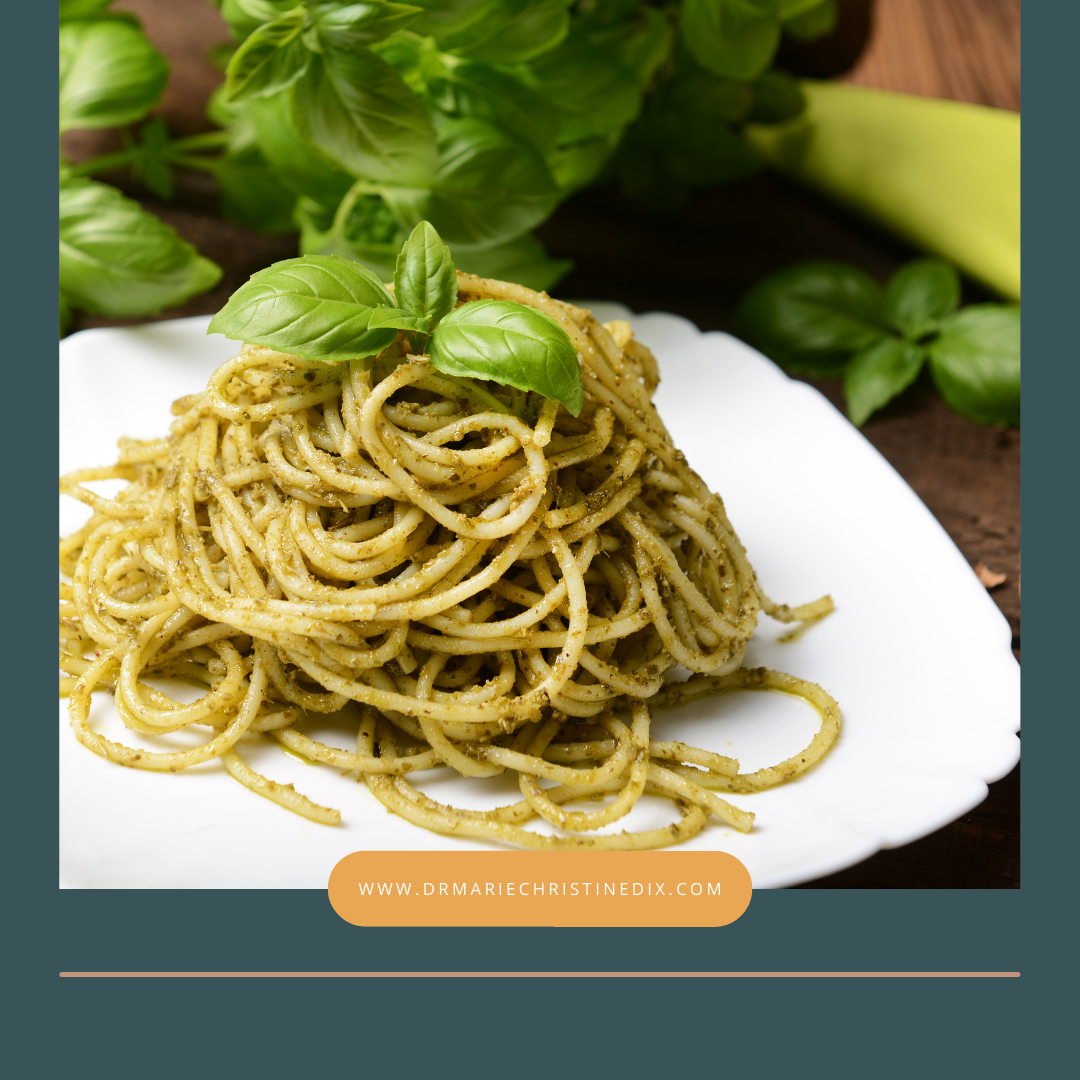Eczema 101
Everything you need to know about Eczema.
Eczema 101 by Dr. Marie-Christine Dix
Atopic dermatitis, commonly called eczema is a skin condition caused by and causing inflammation. This skin condition is common in children but also can be found in adults. It may be caused by several factors including hereditary and environmental factors, allergies and skin barrier dysfunctions. Eczema causes itchy, dry skin that cause rashes and inflammation.
Research has proven that eczema affects up to 25% of school-aged children in the developed world, and up to 10% of adults.
Eczema is not contagious, but it can exacerbate over time when left untreated. A typical symptom of eczema is an itchy rash or plaque that sometimes appears on the creases of the elbows and knees. Eczema rashes can appear on other parts of the body too including the hair/scalp, face and even feet.
As a functional medicine expert we treat eczema at my clinic. Whether you or your child has eczema, relief starts with a thorough evaluation and a customised treatment plan!
The first step is to making sure you are diagnosed correctly. In some cases eczema can be misdiagnosed.
If you are experiencing the following symptoms on a regular basis it will help us rule out other similar skin conditions.
Red or brown patches of skin
Intense itching
Itching made worse by scratching
Dry, thickened, leathery skin
Swollen areas
Small raised bumps that may ooze fluid
Patches of crusty, yellowish skin, which can be a sign of infection
What are the types of eczema?
There are a number of different types of eczema based on their associated symptoms:
1) atopic dermatitis
Atopic dermatitis causes dry, itchy skin, red rash.
2) contact dermatitis
Contact dermatitis is caused by exposure to something that irritates the skin
3) dyshidrotic dermatitis
Dyshidrotic dermatitis affects fingers, palms of the hands, and soles of the feet. It causes itchy, scaly patches of skin that flake or become red, cracked, and painful. Often mistaken for Athletes Foot.
4) nummular dermatitis
Nummular dermatitis presents as round, red, very itchy scaly patches. It is more common on the lower legs and is usually caused by a break in the skin and a history of very dry skin. Therapeutic treatment approach here looks at skin barrier repair and topical treatments are recommended.
5) stasis dermatitis
Stasis dermatitis is typically seen on the lower legs and is caused by poor blood flow.
It is important to note that the varying symptoms for each type of eczema are triggered by a number of different factors. Every individuals “cause” will therfore vary, which is why it is so important to take a personalised approach to healing from eczema. If you are suffering and need support get in touch for a free discovery call to discuss how my personalised approach to health care can support you.
Book a FREE 15 min consultation with me. Simply click HERE to book your appointment.
Medical experts don’t yet know exactly what causes eczema or why the symptoms and triggers vary so widely between people who suffer from it. Additionally, researchers have found that some people with eczema don’t make enough of a protein called filaggrin (filament aggregating protein). This protein is responsible for helping your skin stay moisturized and healthy.
Common triggers for eczema include:
Cold or dry weather
Dry indoor air
Animal dander
Stress
Food allergies
Synthetic fabrics
Fragrances and detergents, chemicals or preservatives
Sweat
Temperature changes
A cold or respiratory illness
Chemicals & environmental triggers can include smoke, pollen, soaps, and fragrances
Food allergies - Some foods like nuts and dairy, can trigger symptoms of eczema
Food intolerances
Cigarette smoke
Gut damage
Leaky gut
Parasites
Fungal infections of the skin
Yeast infection
Candida
Overgrowth of bad bacteria in the gut
Side effects of certain medications
Hormonal imbalances
The list goes on…
Finding your eczema treatment:
Different natural approaches to the treatment of eczema:
Light therapy
Antibiotics to clear skin infections - in some cases eczema can become infected and antibiotics may be recommended to help patients clear this. If this is the case a functional medicine protocol must be put in place to protect the gut from further damage from antibiotic use.
Moisturisers to protect your skin from further irritation (consideration should be taken as to what sort of moisturiser eg a low chemical moisturiser)
Natural sunscreen to avoid irritation by sun damage
Some medicinal essential oils may also help
Functional medicine approach to eczema
Diet
Supplementation
Gut repairing protocols (all inflammation starts in the gut)
Acupuncture
Medical approaches to healing Eczema:
Steroid creams: Steroid creams, also called topical corticosteroids are common for treatment of eczema. Their anti-inflammatory effects help reduce itching and inflammation allowing the skin to heal. There are various strengths and your medical doctor might prescribe a particular type of steroid cream depending on the severity of your condition.
Anti-itch medications and topical creams
Anti-inflammatory medications
Bandages with a corticosteroid cream to wrap around your skin
Some types of steroid creams include:
Elocon ointment
Cutivate
Cyclocort
Betanate
Kenalog
Some other medication examples include:
Cetirizine (Zyrtec)
Diphenhydramine (Benadryl)
Fexofenadine (Allegra)
Loratadine (Claritin)
I highly recommend applying a functional medicine approach to healing either before or alongside any medical treatment. Functional medicine focuses on treating the cause not just the symptoms, meaning you heal from the inside out and can prevent further relapses in the future.
Diet for Eczema:
For people with eczema, there are several foods that have been shown to potentially aggravate the symptoms of eczema, and may be best avoided.
Some examples of foods that should be considered to be avoided include:
Citrus fruits
Dairy
Eggs
Gluten or wheat
Soy
Sugar
Shellfish
Spices, like vanilla, cloves and cinnamon
Tomatoes
To avoid inflammation and flare-ups, people with eczema should eat more anti-inflammatory foods to assist in reducing eczema symptoms.
For example:
Fatty fish like salmon or herring as they contain high levels of omega-3 oils. Also, omega-3 supplements are a good substitution for fatty fish.
Apples, blueberries, cherries, broccoli, spinach, kale. These foods are high in quercetin that also help reduce inflammation.
Probiotic rich foods such as sauerkraut, yoghurt, kimchi, miso, pickles, kefir. Probiotocs support a healthy gut microbiome which in turn helps reduce inflammation.
An eczema friendly breakfast is my favourite vegan banana pancake.
Ingredients
50 g oat flour ( jumbo oats blended into fine powder)
½ teaspoon baking powder (gluten free is best)
Pinch of salt
2 eggs
1 peeled, ripe banana mashed very well
Butter or oil for cooking
Instructions
In a bowl place the ground oats, baking powder, and optional salt. Whisk to combine well.
Add the beaten eggs and mashed banana, and whisk well.
Heat a griddle to 350°F or place a nonstick, heavy-bottom frying pan over medium heat until hot. Grease your pancake pan with butter or oil.
Pour a small portion of the mixture onto the hot frying pan
Allow the pancakes to cook undisturbed for about 2 minutes or until golden brown, then turn to cook other side.
Serve with a side of coconut yoghurt and fresh blueberries or rasberries.
Yum!
An eczema friendly spaghetti dish that will make your mouth water…..
Pesto Spaghetti with Roasted Vegetables
Ingredients
1/2 cup of Parsley Pesto (2 cups chopped parsely, 1/2 cup toasted chopped walnuts, 2 cloves garlic, 1 Tbsp fresh lemon juice, 1tsp salt, 1/2 cup - 3/4 cup olive oil)
1 can of white beans (cannellini, butter)
1/4 red cabbage, cut into 1cm wedges
6-8 brussel sprouts, quartered
1 tbsp. rice bran oil
1 tsp garlic powder
1/2 tsp salt
250g Gluten free spaghetti or courgette pasta
Method
Preheat the oven to 180 C.
Chop red cabbage and brussel sprouts.
In a bowl, mix cabbage and brussel sprouts in olive oil and season with salt and garlic powder.
Roast for 20 minutes or until browning on the sides.
Meanwhile, make the Parsley Pesto by combining all the ingredients (except the olive oil) in a food processor and pulse until combined. Once mixed slowly drizzle in the oil until the mixture is smooth and reaches desired consistency.
For the creamy sauce, blend the Parsley Pesto (1/2 quantity) and the drained white beans on high speed, adding a touch water to achieve a creamy consistency.
In a large saucepan, boil enough water to cook the pasta.
Cook the pasta according to packet instructions until al dente. Drain and return to saucepan.
Pour the creamy pesto sauce over the pasta and gently mix through to coat the pasta.
Any left over pesto can be divided into small jars and frozen to use at a later date.
Research materials:
https://pubmed.ncbi.nlm.nih.gov/?term=eczema
Anti-psoriatic effect of Lavandula angustifolia essential oil and its major components linalool and linalyl acetate
https://pubmed.ncbi.nlm.nih.gov/32623016/
https://pubmed.ncbi.nlm.nih.gov/?term=eczema+and+francincense
Eczema and gluten
https://pubmed.ncbi.nlm.nih.gov/?term=eczema+and+gluten
Eczema and dairy
https://pubmed.ncbi.nlm.nih.gov/?term=eczema+and+dairy
Eczema and sugar
https://pubmed.ncbi.nlm.nih.gov/?term=eczema+and+sugar
Eczema and gut damage
https://pubmed.ncbi.nlm.nih.gov/?term=eczema+and+gut+damage
